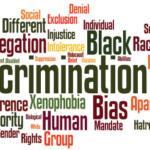
When evaluating a patient’s pain, whether consciously or not, a doctor may allow mistaken beliefs to affect their interpretation of a patient’s symptoms and, thus, treatment decisions.
Chad Zuber/shutterstock.com
In the world of evidence-based medicine, basing diagnosis and treatment decisions on belief instead of data seems anachronistic. And yet … clinicians are human, and humans live in culture, and culture is formed by beliefs, and beliefs (consciously or unconsciously) drive perception and, often, action.
So a new study shining a light on racial bias in the way pain is assessed and treated doesn’t come as a surprise, but it does highlight the continued need for clinicians to be aware of the seepage of beliefs into their practice and the ways it may interfere with good clinical care.
“Physicians are trained to determine the etiology and severity of patients’ symptoms and to treat patients accordingly,” says Ernest R. Vina, MD, University of Arizona Arthritis Center, Tucson, Ariz. “During the evaluation process—although unconscious (or possibly conscious)—bias may influence how physicians interpret patients’ symptoms.”
In the study, investigators from the University of Virginia focused on the beliefs held by white medical students and residents about biological differences between black and white people and how these beliefs are linked to racial bias in pain perception and treatment recommendations. In specific, the study looked at whether white people with medical training held false beliefs about biological differences between blacks and whites, and whether this influenced pain diagnosis and treatment recommendations.
The study found that a substantial number of white medical students and residents hold false beliefs about biological differences between white and black persons. Those false beliefs predict racial bias in pain perception, and this bias extends to treatment recommendations.

Ms. Hoffman
“We’ve known for a long time that there are huge disparities in how blacks and whites are assessed and treated by the medical community,” says lead author of the study, Kelly M. Hoffman, PhD candidate in social psychology, Department of Psychology, University of Virginia. “Our study provides some insight into what might contribute to this—false beliefs about biological differences between blacks and whites.”
These false beliefs are not new and have historically been used to justify slavery and the inhuman treatment of black persons in medicine, Ms. Hoffman says, adding that one striking finding is that the false beliefs held today are not necessarily related to individual prejudice.



